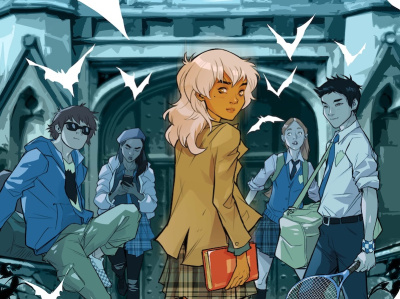Are you familiar with the KISS Principle? No, it has nothing to do with Gene Simmons, Paul Stanley, Ace Frehley, or Peter Criss. Nor does it refer to Britney Spears and Madonna. As defined on Whatis.com, the KISS (Keep It Simple, Stupid) Principle states:
1. People (including product and service users) generally want things that are simple, meaning easy to learn and use.
2. A company that makes products or furnishes services may find simplicity an advantage for the company as well, since it tends to shorten time and reduce cost. (Where the company is trying to use the principle on behalf of users, however, design time may take longer and cost more, but the net effect will be beneficial since easy-to-learn-and-use products and services tend to be cheaper to produce and service in the long run.)
Numerous books have been written using the KISS Principle as their foundation, extolling Terry Bradshaw's homespun wisdom, instructing readers on golf, computer usage, and closing the deal, or just simply doling out existential nuggets of universal truth. Companies urge employees to apply the KISS Principle to project management, shortening the completion time and eliminating costly over-runs. I've even heard martial arts instructors directing the class to 'keep it simple, students' and not over-think self defense moves.
Maybe Marvel and DC should familiarize themselves with the KISS Principle..
Look at the solicitations for the next few months. They make Identity Crisis, Green Lantern: Rebirth, and Avengers: Disassembled seem inconsequential. First, DC revives the cult favorite Seven Soldiers of Victory, given the typical Grant Morrison treatment and spread out over 30 issues (two book-ends and seven separate miniseries). Then, in the aftermath of Countdown, the entire DCU gets an extreme make-over, apparently revamping the universe into a grimmer, grittier, more Marvelesque reality. Meanwhile, Marvel is facing its own altered state-of-being, thanks to the 10th Anniversary Age of Apocalypse, the upcoming House of M, and the on-going Ultimate Universe. While these cross-over events are sure to catch the attention of readers, and will most likely generate some increased sales, I can't help but wonder if the Big Two are barking up the wrong tree?
When I was a kid, I could buy a comic, sit down and read it and feel some sense of satisfaction from the story, which had a beginning, middle, and end, all in one book. Nowadays, I must read a minimum of four to six issues-the magic number of 'chapters' to make a reprint trade paperback-or I'm left hanging. As often as not, that story arc will lead into another, which bleeds into another, which segues into another, ad nauseam. Readers are so conditioned to this pattern that they feel cheated by stand-alone issues (usually filler material published to give the creative team a chance to get caught up on deadlines). Some comics fans are rejecting the monthly, serialized comic in favor of the compilation, believing that all the best material will be reprinted anyway. Are publishers conditioning readers to expect bigger and better spectacles every month? When will it reach the point of no return?
Megalithic comic book series were born in the 1980's, with DC's Crisis on Infinite Earths and Marvel's Secret Wars. I remember both fondly, as well as the myriad spin-offs and cross-overs. At the time, these series were the exceptions, not the rule. Because of their unique, cosmos-spanning nature, and epic storytelling scope, both events sold well. This, of course, spawned a slew of bastard offspring, such as Millennium, Atlantis Attacks, Legends, and Secret Wars II. New (smaller) generations of comic book readers were weaned on these visual car-wrecks and storytelling train-derailments, and came to accept them as the norm. By the time Mark Waid co-oped the six-issue-story-arc-cum-trade-paperback format from Vertigo to boost sales on Flash, the industry had already turned the corner. Ironically, as writers and artists explored the freedom offered by longer, more complex stories, overall sales dropped. Had the industry 'grown up' to become 'real literature' at the expense of the comic book fan?
As comic book sales are geared more and more toward the massive, the monstrous, the mythological, I'm left feeling nostalgic for the simpler days of stand-alone issues, self-contained stories, and solo adventures. Don't get me wrong--I love a good epic every now and then. But not every month. And certainly not every week.
'Keep It Simple, Stupid'--is the comic book industry ready to return to this principle? Or are we going to kiss the future of comics good-bye?







